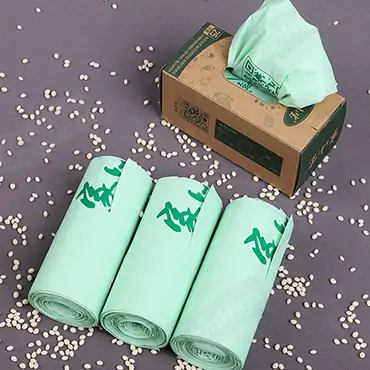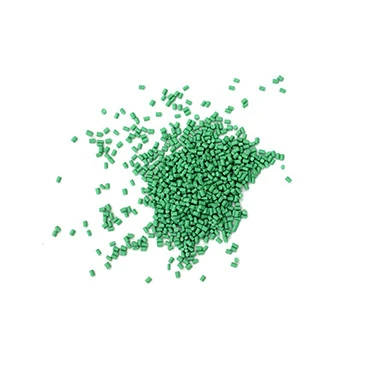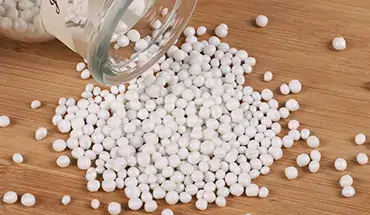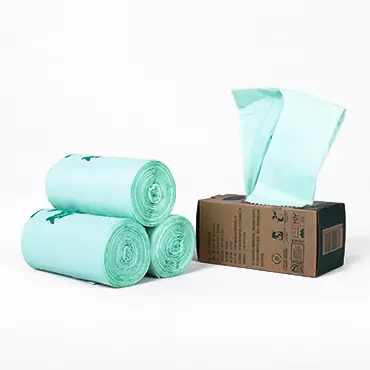It is widely acknowledged that the task of collecting dog waste is neither pleasant nor hygienic. The process is often odorous and messy. However, as conscientious pet owners and businesses catering to them, it is an unavoidable responsibility. Traditionally, the primary solution has been single-use, petroleum-based plastic bags, which are notorious for their fragility, unpleasant texture, and most critically, their long-lasting environmental impact, remaining in landfills for centuries.
Fortunately, a more sustainable alternative has emerged: biodegradable and compostable dog waste bags. These environmentally friendly options represent a significant advancement, providing a responsible and eco-conscious solution that benefits both the planet and the user’s peace of mind.
This guide aims to provide comprehensive information on these innovative products. Whether you are a pet supply retailer seeking to offer superior alternatives or a pet service organization striving for sustainability, this resource will equip you with the necessary knowledge. Let us explore further.
The Poop Problem: Why Traditional Plastic Bags are a Mess
Before we jump into the solutions, let’s take a quick look at why those traditional plastic poop bags are such a problem. It’s not just about the ick factor; it’s about the long-term environmental impact.
The Landfill Legacy: Plastic’s Never-Ending Story
Think about it: every single plastic poop bag you’ve ever used is still out there somewhere, probably sitting in a landfill. Traditional plastic is made from petroleum, a non-renewable resource, and it’s designed to be incredibly durable. That’s great for some things, but terrible for something that’s meant to be thrown away. These bags can take hundreds, even thousands, of years to decompose, and even then, they often just break down into smaller pieces of plastic (microplastics).
Ocean Pollution: A Sea of Plastic
And it’s not just landfills. Plastic waste, including poop bags, often ends up in our oceans, where it poses a serious threat to marine life. Animals can get tangled in the bags or mistake them for food, leading to injury, illness, and even death.
Microplastics: the invisible threat
Microplastics can enter the food web when smaller creatures ingest them. Because of biomagnification, the concentration of microplastics and any chemicals they contain can be increased as they pass up the food chain.
Enter the Heroes: Biodegradable and Compostable Dog Poop Bags
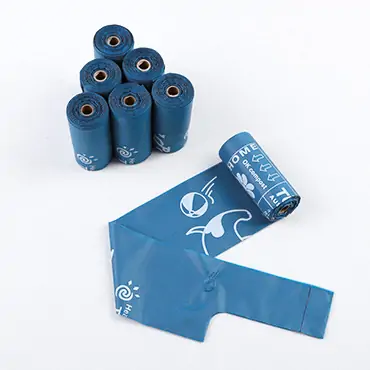
Let’s talk about the good guys: biodegradable and compostable dog poop bags. These bags offer a way to scoop the poop responsibly without contributing to the plastic pollution crisis. But what’s the difference between “biodegradable” and “compostable”? It’s a crucial distinction!
What Exactly Does “Biodegradable” Mean?
“Biodegradable” means that a material can be broken down by microorganisms (like bacteria and fungi) into natural substances like water, carbon dioxide, and biomass. Sounds good, right? The catch is that there’s no specific timeframe associated with “biodegradable.” Something could technically be biodegradable but still take hundreds of years to break down completely.
What About “Compostable”? The Breakdown Breakdown
“Compostable” is a more specific term. It means that a material can break down in a composting environment (either at home or in an industrial facility) within a specific timeframe, usually a few months. Compostable materials break down into nutrient-rich compost, which can be used to enrich soil.
Biodegradable vs. Compostable: Key Differences Explained
Here’s a simple analogy: Think of a banana peel. It’s biodegradable and compostable. It’ll break down naturally over time, and it’ll break down even faster in a compost bin. Now think of a piece of wood. It’s biodegradable, but it’s not necessarily compostable (at least not in your backyard compost pile – it would take way too long!).
The key takeaway? Compostable is a type of biodegradable, but it’s a more regulated and faster process. For dog poop bags, this difference is important when it comes to disposal.
Materials Matter: What Are These Eco-Friendly Bags Made Of?
So, what magical materials make these bags so environmentally friendly? Let’s break it down:
-
Plant Power: Corn Starch and Other Natural Wonders
Many biodegradable and compostable dog poop bags are made from plant-based materials, with corn starch being a popular choice. Corn starch is a renewable resource, and it’s readily compostable. Other plant-based materials, like tapioca and vegetable oils, can also be used.
-
PLA and PBAT: The Bio-Based Polymer Power Couple
You’ll often see the acronyms PLA (polylactic acid) and PBAT (polybutylene adipate terephthalate) on the packaging of these bags. These are bio-based polymers, meaning they’re derived from renewable resources (like corn starch) rather than petroleum.
- PLA is a strong and versatile bioplastic, often used in food packaging and other applications.
- PBAT is more flexible and is often blended with PLA to improve its compostability and tear resistance.
Together, PLA and PBAT create a strong, durable, and compostable material that’s perfect for dog poop bags.
-
Decoding the Labels: Certifications to Look For
To ensure you’re getting a truly eco-friendly product, look for certifications from reputable organizations. These certifications guarantee that the bags meet specific standards for biodegradability and compostability. Some key certifications to look for include:
- BPI (Biodegradable Products Institute): A leading certifier in North America.
- TUV AUSTRIA OK compost HOME: Certifies products that are compostable in home composting systems.
- TUV AUSTRIA OK compost INDUSTRIAL: Certifies products that are compostable in industrial composting facilities.
- Seedling Logo: Indicates a product is industrially compostable according to the European standard EN 13432.
These certifications provide assurance that the bags will break down as advertised.
Benefits of Using Biodegradable and Compostable Poop Bags
Switching to biodegradable or compostable dog poop bags might seem like a small thing, but the benefits are significant:
-
Reduced Plastic Waste: A Smaller Paw Print on the Planet
This is the most obvious benefit. By choosing these bags, you’re directly reducing the amount of plastic waste that ends up in landfills and oceans. Every bag counts!
-
Lower Carbon Footprint: Less Greenhouse Gas Guilt
The production of traditional plastic bags requires a lot of energy and resources, and it releases greenhouse gases into the atmosphere. Bio-based bags, on the other hand, have a significantly lower carbon footprint, especially if they’re made from sustainably sourced materials.
-
Soil Enrichment (Compostable Only): Turning Poop into Plant Food
Compostable bags, when properly composted, break down into nutrient-rich compost that can be used to improve soil health. While you shouldn’t compost the dog poop itself (more on that later), the bag itself can contribute to a healthier garden.
-
Peace of Mind: Doing Your Part for a Healthier Planet
Let’s be honest, the constant stream of news about climate change and plastic pollution can be overwhelming. It’s easy to fall into a state of ‘eco-anxiety,’ feeling guilty about our impact on the planet and powerless to make a real difference.
But here’s the thing: even seemingly small choices, like switching to biodegradable or compostable dog poop bags, can be a powerful antidote to that feeling. It’s a tangible way to take responsibility for your pet’s waste and reduce your contribution to the plastic crisis. Knowing you’re actively choosing a more sustainable option, one that minimizes harm to the environment provides a genuine sense of relief and empowerment. It’s a step, however small, in the right direction, and that feeling of aligning your actions with your values is incredibly powerful.
Choosing the Right Bag: A Buyer’s Guide for Businesses
Now that you’re convinced of the benefits, how do you choose the right bag? Here’s what to consider:
-
Strength and Durability: No One Wants a Mid-Walk Mess
This is arguably the most important factor. You need a bag that’s strong enough to handle the, ahem, load without tearing or leaking. Look for bags that are specifically designed for dog waste and that have good reviews for strength and durability.
-
Size Matters: Matching the Bag to the Breed
A Chihuahua’s “business” is going to be a lot different than a Great Dane’s! Make sure you choose a bag that’s appropriately sized for your dog (or your customers’ dogs, if you’re a business).
-
Thickness: Finding the Balance Between Eco-Friendliness and Leak-Proofing
Thicker bags are generally stronger, but they may also take longer to break down. Look for a bag that strikes a balance between thickness and compostability.
-
Dispenser Compatibility: Easy Access is Key
Most dog poop bags come on rolls that are designed to fit into standard dispensers. Make sure the bags you choose are compatible with your preferred dispenser (or offer dispensers that are compatible with your bags, if you’re a business).
-
Customization Options For Businesses: Branding and Bulk Buys
For pet supply retailers, pet service organizations, and other businesses, customization is a great option. You can often get bags printed with your logo or branding, which is a great way to promote your business and your commitment to sustainability. Bulk buying is also a cost-effective option for businesses.
How to Use Biodegradable and Compostable Dog Poop Bags?
Using these bags is pretty much the same as using traditional plastic bags.
The simple steps:
- Tear off a bag from the roll.
- Turn the bag inside out over your hand.
- Scoop the poop.
- Carefully turn the bag right-side out, trapping the waste inside.
- Tie the bag securely.
Tips:
- Double-bagging is always a good idea, especially if you’re dealing with a particularly messy situation.
- Keep a roll of bags in your car, your purse, your backpack – anywhere you might need them.
Disposal Done Right: The Final Step in the Eco-Friendly Poop Cycle
This is where the difference between biodegradable and compostable bags becomes crucial.
Biodegradable Bags: Landfill-Bound
Biodegradable bags that aren’t certified compostable should be disposed of in the regular trash. They’ll still break down faster than traditional plastic bags, but they’re not suitable for composting.
Compostable Bags: Home Composting vs. Industrial Facilities
Compostable bags can be composted, but there are some important caveats:
-
The “No Poop in the Compost” Rule
In most cases, you should not compost dog poop itself, especially in a home composting system. Dog waste can contain pathogens that are harmful to humans and that may not be killed off during the composting process.
-
Finding a Local Composting Service
Some cities and municipalities offer industrial composting services that do accept pet waste. These facilities operate at higher temperatures than home compost piles, which can effectively kill off pathogens. Check with your local waste management provider to see if this is an option in your area.
If it is available, then the entire compostable dog poop bag, including the waste, can go straight into the designated bin.
If it is not available, then the waste must be disposed of separately and only the bag goes in compost.
Addressing Common Concerns and Misconceptions
Let’s tackle some common questions and concerns about these eco-friendly bags:
-
Are They Really Better for the Environment?
Yes, biodegradable and compostable dog poop bags are significantly better for the environment than traditional plastic bags. They reduce plastic waste, lower your carbon footprint, and (in the case of compostable bags) can even contribute to soil health.
-
Cost Considerations: The Price of Sustainability
Eco-friendly bags can sometimes be slightly more expensive than traditional plastic bags. However, the price difference is often minimal, and many people find it’s a worthwhile investment for the environmental benefits. Plus, as demand increases, prices are likely to come down.
-
Shelf Life: Do These Bags Expire?
Biodegradable and compostable bags do have a shelf life, but it’s usually quite long (a year or more). Store them in a cool, dry place to maximize their lifespan.
The Future of Poop Bags: Innovation and Beyond
The world of sustainable pet products is constantly evolving, and dog poop bags are no exception.
New Materials and Technologies on the Horizon
Researchers are continually exploring new materials and technologies for making even more eco-friendly poop bags. This includes exploring alternative plant-based materials and developing new composting processes.
The Growing Demand for Sustainable Pet Products
Consumers are increasingly demanding sustainable options for all aspects of their lives, including pet care. This growing demand is driving innovation and making eco-friendly products more accessible and affordable.
Conclusion: Scoop the Poop, Save the Planet
Switching to biodegradable or compostable dog poop bags is a simple but impactful way to reduce your environmental footprint. It’s a small change that can make a big difference, especially when multiplied by millions of pet owners around the world.
So, the next time you’re stocking up on poop bags, make the eco-friendly choice. Your dog, your planet, and your conscience will thank you! And if you are a distributor, supplier, retailer… Contact a biodegradable compostable bag manufacturer, and make the change!

